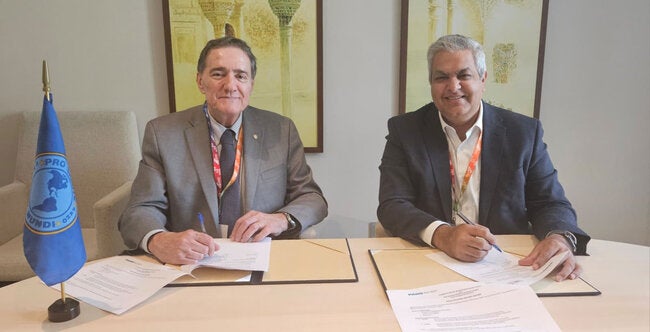WP_Post Object
(
[ID] => 121954
[post_author] => 3
[post_date] => 2024-02-23 10:37:37
[post_date_gmt] => 2024-02-23 09:37:37
[post_content] => [vc_row][vc_column width="2/5"][vc_single_image image="121958" img_size="full" alignment="center"][/vc_column][vc_column width="3/5"][vc_column_text]
Cuando me ofrecieron el honor de hacer un escrito para esta revista, me sentí halagado y asustado, por la responsabilidad que representa. Después me acordé de que no cobro un duro y me dije “por qué no”.
Bromas aparte. Me gustaría compartir con todos vosotros dos temas que por mi idiosincrasia han sido bandera de mi supervivencia: el empoderamiento y el activismo, entendiendo este último como un derecho a participar en la toma de decisiones de nuestras vidas y la reivindicación de derechos. No nos podemos excluir voluntariamente de nuestros tratamientos y nuestras vidas.
Sé que nunca volveré a ser el de antes. Después de mi primer ingreso, me di cuenta de que tenía que coger otros caminos para poder seguir hacia delante y tuve suerte, mucha suerte. Suerte con los profesionales, con Bea, mi hermana, y Lurdes, mi compañera.
Cuando encontré el movimiento asociativo, se me abrieron un montón de pestañas en la barra de herramientas “¿y, por qué no ventanas?”, porque las pestañas son mucho más difíciles de encontrar y mucho menos claras.
Con bastantes obstáculos, paternalismo, inmovilismo, envidias, expertos varios, etc. Por nombrar algunos. Pero también encontré AMOR, COMPRENSION, EMPATÍA, Y LIBERTAD. Sí, libertad, a pesar de este sufrimiento emocional que me acompaña. Porque loco es funcionar, pensar diferente, pero visto lo visto, bienvenida sea mi locura. Esa locura que me hizo invertir mi tiempo en defender mis derechos y los de mi colectivo. Y después, con la experiencia, los de familiares y profesionales.
Sinceramente, el activismo no puede ser sin empoderamiento y si esto sucede se puede caer en la instrumentalización de los activistas “yo lo sé bien”. Los logros, por pequeños que sean, son pasos de gigante en nuestro mundo, solo poder decir lo que pensamos y vivimos “aunque sea diferente” es importante, no nos condiciona nada, solo nuestras experiencias.
Mis gracias a las asociaciones, federaciones, Confederación y por supuesto a los activistas, que, con su participación en diferentes sitios, exponiéndose y dando la cara, han conseguido que se vea una realidad que estaba ahí, pero que no queríamos reconocer: “ojos que no ven…”.[/vc_column_text][/vc_column][/vc_row][vc_row][vc_column][vc_column_text]Hoy ya no nos extraña que personas, más o menos mediáticas, reconozcan tener un problema de salud mental. Los protocolos de diferentes servicios en salud mental se empiezan a revisar.
Y sin lugar a duda esto ha sido por la difusión de diferentes campañas de normalización, de lucha contra el estigma y visualización de los diferentes problemas, que no son pocos; de ahí la importancia del activismo.
A lo largo de mi experiencia como activista, he disfrutado de compañías muy enriquecedoras, y participado en proyectos interesantes y necesarios, pero también he tenido que lidiar con egos, incapaces de ver que el objetivo que se persigue va mucho más allá de nosotros mismos y de intereses particulares, y en ocasiones he visto dispersarse mis energías, mis esperanzas y las de mis compañeros.
Pero tengo la certeza de que, si seguimos en el mismo camino, conseguiremos muchos de nuestros objetivos. No sin esfuerzo y paciencia. Y puede que en un futuro no tengamos que demostrar lo que valemos para que nos escuchen “nada de nosotras sin nosotras”.
En una entrevista a Margaret Mead (antropóloga 1901-1978) le preguntaron cuál consideraba ella que fue el primer signo de civilización. Respondió: un fémur fracturado que había sanado. No dijo el control del fuego, la piedra de moler… ese fémur requería una sociedad que cuidaba de los que lo necesitaban.
Artículo de opinión, perteneciente a la sección "La Voz de SALUD MENTAL ESPAÑA", publicado en el nº 2 de la Revista Encuentro, 2023.[/vc_column_text][/vc_column][/vc_row][vc_row][vc_column][vc_separator][/vc_column][/vc_row][vc_row][vc_column][vc_column_text]Recientemente Francisco participó en la jornada de presentación del informe sobre tratamientos e ingresos involuntarios en salud mental. Puedes ver y escuchar la intervención de Francisco en este vídeo.[/vc_column_text][/vc_column][/vc_row][vc_row][vc_column][vc_video link="https://www.youtube.com/live/H84WRORtaeM?feature=shared&t=5582"][/vc_column][/vc_row][vc_row][vc_column width="1/4"][vc_btn title="VOLVER A NOTICIAS" style="gradient-custom" gradient_custom_color_1="#ffffff" gradient_custom_color_2="#ffffff" gradient_text_color="#005b50" shape="square" align="center" i_icon_fontawesome="fa fa-chevron-circle-left" add_icon="true" link="url:%2Fnoticias%2F|title:NOTICIAS||"][/vc_column][vc_column width="1/4"][/vc_column][vc_column width="1/4"][/vc_column][vc_column width="1/4"][/vc_column][/vc_row]
[post_title] => Una crítica constructiva
[post_excerpt] => Artículo de opinión de Francisco Rubio Chuan, representante del Comité Pro Salud Mental En Primera Persona de SALUD MENTAL ESPAÑA y presidente de Obertament. Publicado en el nº 2 de la Revista Encuentro, año 2023.
[post_status] => publish
[comment_status] => closed
[ping_status] => open
[post_password] =>
[post_name] => critica-constructiva-revista-encuentro
[to_ping] =>
[pinged] => https://consaludmental.org/centro-documentacion/revista-encuentro-n2-2023/
Informe sobre tratamientos e ingresos involuntarios en salud mental
[post_modified] => 2024-02-23 10:39:02
[post_modified_gmt] => 2024-02-23 09:39:02
[post_content_filtered] =>
[post_parent] => 0
https://consaludmental.org/?p=121954 => https://consaludmental.org/?p=121954
[menu_order] => 0
[post_type] => post
[post_mime_type] =>
[comment_count] => 0
[filter] => raw
)
Opinion article by Francisco Rubio Chuan, representative of the First Person Mental Health Committee of SALUD MENTAL ESPAÑA and president of Obertament. Published in No. 2 of Encuentro Magazine, year 2023.
When I was offered the honor of writing for this magazine, I felt flattered and scared because of the responsibility it represents. Then I remembered that he didn’t charge a penny and I said to myself “why not”.
Joking apart. I would like to share with all of you two topics that, due to my idiosyncrasy, have been the flag of my survival: empowerment and activism, understanding the latter as a right to participate in the decision-making of our lives and the vindication of rights. We cannot voluntarily exclude ourselves from our treatments and our lives.
I know he will never be the same again. After my first admission, I realized that I had to take other paths to be able to move forward and I was lucky, very lucky. Good luck with the professionals, with Bea, my sister, and Lurdes, my partner.
When I found the associative movement, a bunch of tabs opened in the toolbar “why not windows?”, because the tabs are much harder to find and much less clear.
With many obstacles, paternalism, immobility, envy, various experts, etc. To name a few. But I also found LOVE, UNDERSTANDING, EMPATHY, AND FREEDOM. Yes, freedom, despite this emotional suffering that accompanies me. Because it is crazy to function, to think differently, but having seen what I have seen, my madness is welcome. That madness that made me invest my time in defending my rights and those of my group. And then, with experience, those of family members and professionals.
Honestly, activism cannot be without empowerment and if this happens we can fall into the instrumentalization of activists “I know it well.” Achievements, no matter how small, are giant steps in our world, just being able to say what we think and live “even if it is different” is important, it does not condition us at all, only our experiences.
My thanks to the associations, federations, Confederation and of course to the activists, who, with their participation in different places, exposing themselves and showing their faces, have managed to show a reality that was there, but that we did not want to recognize: “eyes that they don’t see…»
Today we are no longer surprised that people, more or less in the media, acknowledge having a mental health problem. The protocols of different mental health services are beginning to be reviewed.
And without a doubt this has been due to the dissemination of different normalization campaigns, to fight against stigma and to visualize the different problems, which are not few; Hence the importance of activism.
Throughout my experience as an activist, I have enjoyed very enriching company, and participated in interesting and necessary projects, but I have also had to deal with egos, incapable of seeing that the objective pursued goes far beyond ourselves and of particular interests, and on occasions I have seen my energies, my hopes and those of my companions disperse.
But I am certain that, if we continue on the same path, we will achieve many of our objectives. Not without effort and patience. And maybe in the future we won’t have to prove our worth to be heard, “nothing about us without us.”
In an interview with Margaret Mead (anthropologist 1901-1978) she was asked what she considered to be the first sign of civilization. She answered: a fractured femur that she had healed. She didn’t say the control of fire, the grinding stone… that femur required a society that took care of those who needed it.
Opinion article, belonging to the section “La Voz de SALUD MENTAL ESPAÑA”, published in No. 2 of Encuentro Magazine, 2023.








Thanks for sharing. I read many of your blog posts, cool, your blog is very good. https://accounts.binance.com/ro/register-person?ref=V3MG69RO